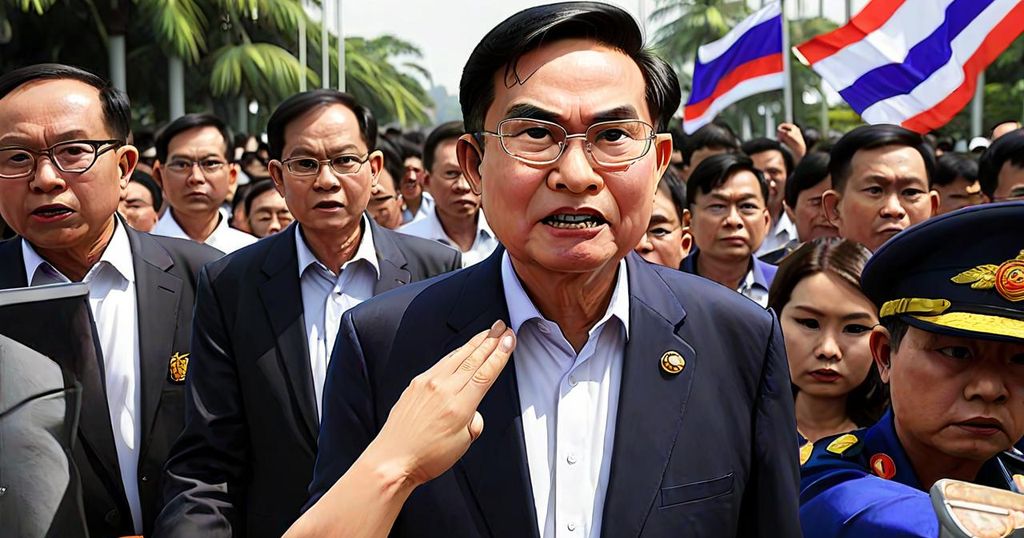In a surprising turn of events, Srettha Thavisin of the populist Pheu Thai party has garnered enough support in Parliament to be appointed as Thailand’s 30th prime minister. This unforeseen development occurred shortly after former Prime Minister Thaksin Shinawatra returned from a period of self-imposed exile and initiated an eight-year prison sentence. Although the final vote count was not yet complete, Srettha had secured adequate backing to emerge as the probable victor.
During the voting process, proceedings were momentarily halted with approximately 20 votes remaining, due to the collapse of an individual on the floor of Parliament, injecting an element of uncertainty into the proceedings. Srettha’s apparent triumph follows months of legal disputes and negotiations that ultimately led to the rejection of the surprise election winner, the Move Forward Party, by conservative senators appointed by a previous military government.
Srettha is poised to lead a coalition government comprising 11 parties, including two pro-military parties, while excluding the Move Forward Party. Detractors have accused the new government of subverting the election results, perceiving it as a tactic to resolve the political deadlock and foster reconciliation. Nevertheless, Pheu Thai leaders have defended the coalition as a necessary step in addressing the country’s political impasse.
At Pheu Thai party headquarters, supporters arrayed in red celebrated the imminent victory, expressing their elation through dance and jubilation. The coalition has outlined a plan to prioritize strengthening the economy, increasing the minimum wage, and discontinuing mandatory conscription. Additionally, it intends to continue the legalization of medical marijuana and pursue constitutional amendments aimed at fortifying democracy.
Simultaneously, the parliamentary vote coincided with the much-anticipated return of Thaksin amidst facing criminal charges. Thaksin, a billionaire and former prime minister, had been in exile for 15 years following a military coup which terminated his second term in office. His return was met with an outpouring of emotion from his devoted supporters, many of whom had congregated outside the airport to welcome his return to the country.
Thaksin’s influence and legacy have made an indelible impact on Thai politics, particularly through his populist policies that targeted the rural and underprivileged populace. His return deeply resonated with his supporters, who fervently expressed their exhilaration and reverence.
Prior to his return, Thaksin had maintained that his decision was unrelated to the Pheu Thai party’s quest for power. However, many observers speculate that the former leader may be strategically positioning himself to benefit from the formation of a supportive government, potentially leading to a reduction in his prison sentence.
Napon Jatusripitak, a political science researcher and visiting fellow at Singapore’s ISEAS-Yusof Ishak Institute, underscored the intricate link between the election outcome, coalition-building, and Thaksin’s personal agenda. Napon suggested that Thaksin’s return at this juncture may indicate that he has received assurances regarding the resolution of his legal situation.
The convergence of these events has sparked widespread interest and speculation regarding the future political landscape in Thailand, marking a critical juncture in the country’s contemporary history. As the dust settles and the new government takes form, the impact of these developments is poised to resound throughout the nation, signaling a new era of political dynamics in Thailand.

Leave a Reply